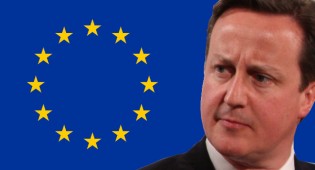EU Parliament Could Strike Lasting Blow to ‘Net Neutrality’ on Tuesday
 The EU Parliament will consider a set of new Internet rules on Tuesday that are purportedly designed to protect net neutrality. Opponents of the proposed legislation however claim the opposite will happen, and they’ve organized a small but influential group of tech giants to present their views to the EU parliament.
The EU Parliament will consider a set of new Internet rules on Tuesday that are purportedly designed to protect net neutrality. Opponents of the proposed legislation however claim the opposite will happen, and they’ve organized a small but influential group of tech giants to present their views to the EU parliament.
Barbara van Schewisk is a law professor at Stanford University and Director of the Stanford Center for Internet and Society. In an effort to draw attention to the law’s potential shortcomings, Schewisk has collected signatures from powerful technology companies and investors in support of an open letter that was sent to EU legislators on Monday.
Also opposed to the legislation is Tim Berners-Lee, creator of the World Wide Web.
Some concerns with the new rules include the fact that “specialized services” could be held exempt, allowing ISPs to designate large companies as “specialized services” thus getting them around the rules that would burden smaller or emerging businesses or individuals. Additionally, critics fear that ISPs could group their customers into “classes” and manipulate service speeds based on who pays the most.
TechCrunch’s Mike Butcher described the objections in a recent post:
The proposal before the Parliament contains four major problems that undermine network neutrality and threaten to undermine the EU technology industry by giving ISPs enormous new powers: Fast Lanes for content chosen by ISPs; Zero-rating content determined solely by ISPs; Class-Based Discrimination determined solely by ISPs; and Impending Congestion Management, once again, determined solely by ISPs.
There have been some efforts within the EU Parliament to add amendments to address the concerns of critics, but it’s unclear whether any of those amendments will be included.
“Contrary to some claims, the proposal is weaker than network neutrality rules in the US,” wrote Schewisk. “European citizens deserve the same free and open Internet that Americans can enjoy.”
“The good news is that members of the European Parliament will introduce amendments that would fix these problems,” she added. “For the amendments to be adopted, the majority of the members (376 of the 751 members) need to vote for the amendments.”
Comments are closed.



